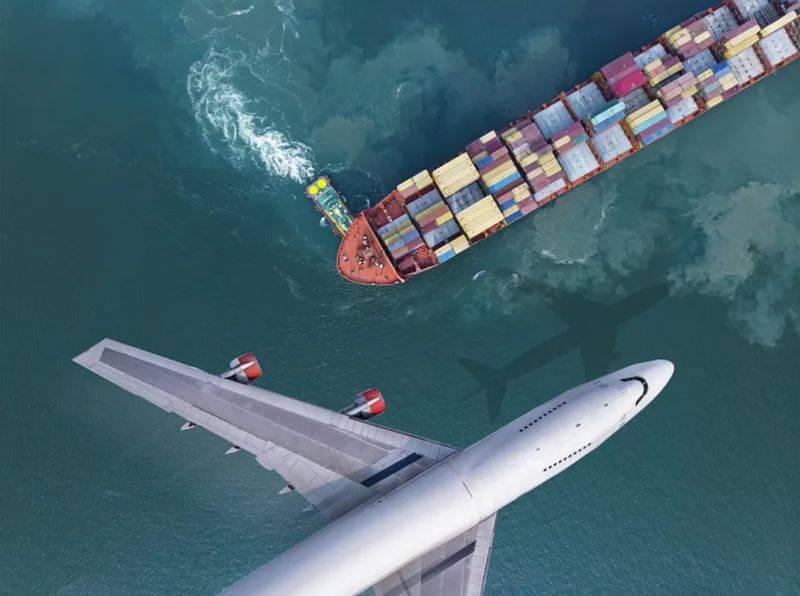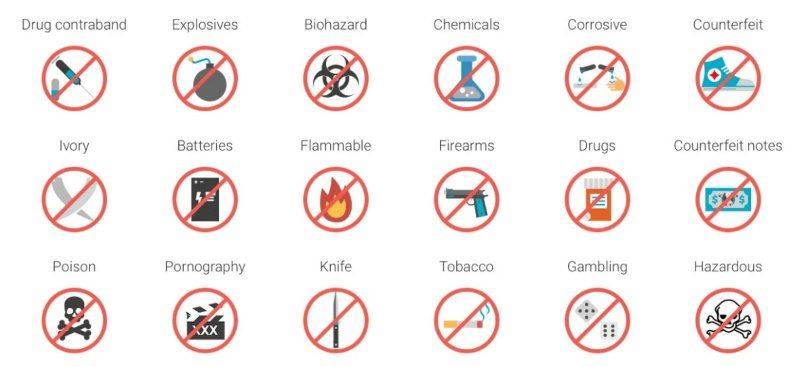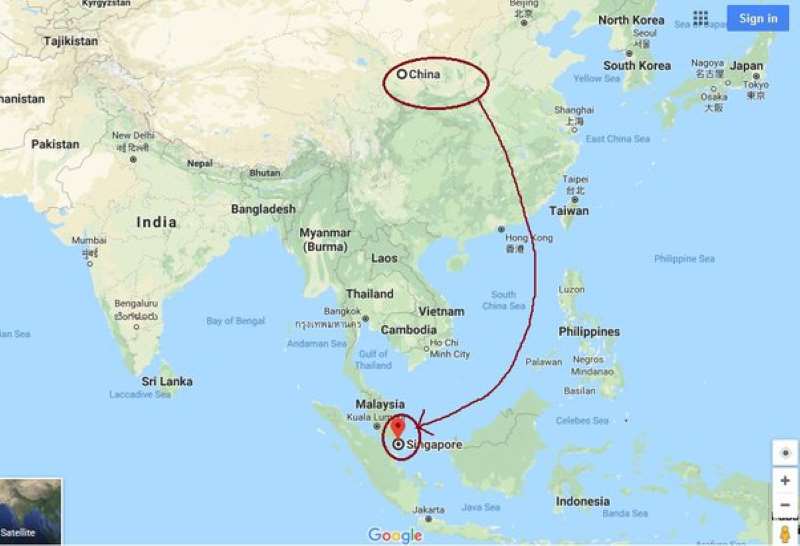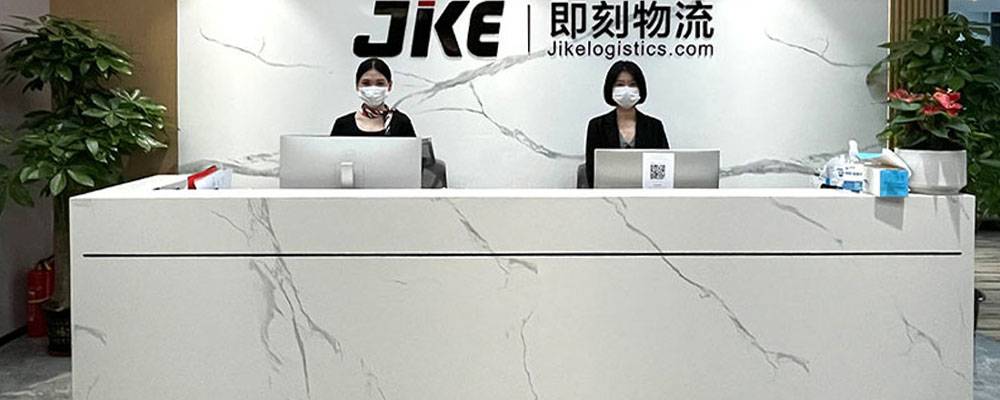2023-10-07

Customized packaging available Choose your own delivery date 2 weeks free warehousing We handle customs clearance We are Shenzhen JIKE Logistics Co., Ltd., a professional and top-notch freight agency since 2014, with nearly 10 years of experience shipping from China to Singapore. We offer premier transportation services, including sea freight, air freight, express, trucking, container FCL/LCL), door-to-door shipping services, and more.
We possess extensive experience and expertise, especially in handling specific industries or regions related to your cargo. We also have a wide global network and partnerships to ensure comprehensive freight shipping services to Singapore and manage the complexity of international transportation. In this article, we will give you a complete guide to help you shipping from China to Singapore.
| Get a Free Instant Quote |
Air Freight and Sea Freight are the two primary methods for shipping goods from China to Singapore.

Air freight from China to Singapore is ideal for high-value, urgent, and lightweight (under 30 kg) goods. With air freight services departing from China, you can expect competitive prices and shorter transit times compared to other modes of transportation, resulting in door-to-door delivery.
While air freight tends to be more expensive than sea or rail shipping, it offers several advantages that the other two methods cannot match. Air freight is safer, faster, and more convenient than other forms of transportation. It provides greater flexibility in scheduling deliveries and offers easy management of cargo flows.
| Changi International Airport |
|---|
| Paya Lebar Airport |
Air freight shipping time from China to Singapore is usually 1 to 2 days and door-to-door air freight shipping time is usually 2 to 6 days.
Goods can be dispatched directly from airports in China such as Shenzhen, Guangzhou, and Hong Kong to Singapore International Airport. However, several factors may influence the delivery time of your goods, including the type of goods (bulk or non-bulk), their value and weight.
| Air Freight Quote |
The cost of airfreight from China to Singapore depends on the transit time, which is usually 1 to 3 days, and ranges from $5 to $18 per kilogram.
| Air Freight Quote |
Sea freight from China to Singapore is a popular route for businesses of various scales. It is cost-effective, reliable, and provides greater cargo size and transit speed flexibility. There are primarily two types of sea freight services—FCL (Full Container Load) and LCL (Less than Container Load). Depending on the size of your cargo and the urgency of shipment, one of them may be more suitable for you.
LCL (Less than Container Load) LCL shipping is recommended if you don't have enough goods to fill a container on your own. Your cargo will be combined with other shipments to offer you competitive freight rates.
FCL (Full Container Load) FCL shipping involves a single consignee owning all the goods in a container. You can choose between 20-foot and 40-foot container sizes based on the total volume of goods you need to transport.
| Port of Singapore |
|---|
| Jurong Port |
| Pasir Panjang Port |
| Keppel Distripark |
| Brani Terminal |
| Marina South Wharves |
| From-To | Transit Time |
|---|---|
| Guangzhou-Singapore | 12 days |
| Chongqing-Singapore | 21 days |
| Fuzhou-Singapore | 15 days |
| Huangpu-Singapore | 10 days |
| Nansha-Singapore | 9 days |
| Shanghai-Singapore | 14 days |
| Guangzhou-Singapore | 6 days |
| Shenzhen-Singapore | 6 days |
| Xiamen-Singapore | 8 days |
| Sea Freight Quote |
| 20ft (USD) | 40ft (USD) | Transit Time (Days) | |
|---|---|---|---|
| Shenzhen-Singapore | 90 | 100 | 5 |
| Shanghai-Singapore | 150 | 300 | 10 |
| Ningbo-Singapore | 150 | 300 | 10 |
| Price per Cubic Meter (USD) | Transit Time (Days) | |
|---|---|---|
| Shenzhen-Singapore | 5 | 5 |
| Shanghai-Singapore | 5 | 10 |
| Ningbo-Singapore | 5 | 10 |
| Sea Freight Quote |
LCL (Less than Container Load) and FCL (Full Container Load) are two methods of transporting goods, differing mainly in how goods are loaded and their use cases:
1. LCL
2. FCL
In summary, LCL is suitable for transporting small batches or scattered goods, allowing for a reduction in the individual cost of transporting a full container. On the other hand, FCL is suitable for transporting large quantities of goods, providing exclusive use of a container's transportation space, albeit at a slightly higher cost. The choice between LCL and FCL depends on the goods' characteristics, quantity, and specific requirements.
On average, air shipping from China to Singapore takes 1 to 2 days. Meanwhile, the estimated transit time for door-to-door delivery via sea freight ranges from 5 to 15 days.
JIKE Logistics offers one of the most economical courier services from China to Singapore.
How Much Customs Duty Do I Need to Pay for Shipping from China to Singapore?
Goods imported from other countries into Singapore are subject to import duties on all items. Goods from regions outside Singapore are subject to different tax regimes, which differ from those applied to goods produced in Singapore. Imported goods are subject to a 7% tax rate, whereas locally produced goods are exempt from taxation. Higher import taxes of 10% apply to alcohol and petroleum products.

CIF Under CIF, the seller is responsible for delivering the goods onto the ship and bears the cost of clearance, freight, and minimum insurance, with the buyer as the beneficiary.
EXW EXW places the minimum responsibility on the seller, as the seller only needs to provide the goods at a specific location (usually the seller's place of business or another specified location) to the buyer. The buyer assumes all responsibility for pickup, loading the goods, and all transportation, freight, duty, and insurance costs.
CFR CFR indicates that the seller covers the cost and freight. The buyer is responsible once the goods are loaded onto the ship and before the main transport occurs.
FOB According to FOB international trade term, the seller's responsibilities include loading the goods onto the ship and clearing the goods. The buyer chooses the port where the goods will depart. Once the products are loaded onto the ship, all costs and risks are transferred to the buyer.
FAS FAS stipulates that the seller is responsible until the goods are delivered alongside the specified vessel at the port. The seller bears customs and transportation costs.
FCA FCA international trade term is commonly used for containerized goods. It specifies that the seller is responsible for arranging and paying for pre-carriage services from their warehouse to a specific location. This location can be a port, freight depot, transport hub, or similar point. When the vehicle arrives at the designated place for loading the goods, risk and cost are transferred to the carrier. Customs clearance remains the seller's responsibility. If the designated place is still within the seller's premises, the seller still needs to load the goods onto the vehicle. After this point, the risk only transfers to the buyer.
CIP In CIP, the seller remains responsible for the goods, transportation costs, and insurance until the product arrives at the destination port. Once the goods are received by the first carrier, all risks and costs transfer to the buyer.
CPT CPT stipulates that the seller is responsible for transporting the goods but not for insuring the goods. The buyer takes on all costs after transferring the goods to the carrier. The buyer can purchase insurance for the goods at this point.
DPU Introduced in the 2010 Incoterms, DPU, originally termed "Delivered at Terminal," was renamed "Delivered at Place Unloaded" (DPU) in the 2020 Incoterms. In DPU, the seller bears all risks and costs of transporting, delivering, and unloading the goods from the arriving conveyance. After unloading, risks and costs transfer to the buyer. The buyer assumes responsibility for duties, taxes, and import clearance.
DAP DAP is almost identical to DPU, with the key difference being that, in DAP, the buyer's responsibility begins when the goods can be unloaded from the transport vehicle. DAP shifts the unloading responsibility from the seller to the buyer.
DDP This Incoterm places the seller's maximum responsibility for all risks and costs. DDP mandates that the seller pays for and is responsible for delivery, import duties, taxes, and goods insurance. Import clearance is also the responsibility of the seller.
When importing goods from China to Singapore, these are the 11 possible Incoterms that may apply to your transactions with buyers, carriers, and freight forwarders, ensuring a smooth import process.
| Can I refuse to pay additional customs duties for shipments to Singapore? |
|---|
| No, that's not possible. You must pay the customs duties charged by customs to be able to pick up the goods or clear them from the port. |
| What documents do I need for shipping from China to Singapore? |
|---|
| When shipping from China to Singapore, you must fill out customs clearance documents like commercial invoices and packing lists. But don't worry, when you ship with us, all of this will be handled as part of our process. |
| How long does it take to ship from China to Singapore? |
|---|
| Sea freight from China to Singapore takes 5-15 days, air freight takes 1-2 days, and express shipping takes 1-5 days. However, transit times depend on the distance between the origin port and the destination in Singapore. |
| How much does it cost to ship from China to Singapore? |
|---|
| The shipping cost from China to Singapore depends on the season, type of goods, weight, and package size. For example, shipping a 20kg package from China to a warehouse in Singapore via air freight costs around US$5.0/KG, while sea freight costs about US$30/CBM port-to-port. For bulk orders, transportation costs can be more competitive. JIKE Logistics offers many options for shipping from China to Singapore depending on your budget and delivery time requirements. |
| How can I reduce shipping costs? |
|---|
| To save costs, you can try reaching out to JIKE Logistics. We can lower transportation costs by optimizing the logistics network, selecting the appropriate mode of transport, and efficiently packaging goods. Online booking, prepaid packages, and insurance are all good ways to ensure your goods arrive safely. |

Are you looking for safe and reliable international shipping and moving services?
We've got you covered!
| Get a Free Instant Quote |

JIKEship's office is a dynamic and creative space. It provides a comfortable and productive working environment for employees.
2022-11-04

FCL and LCL are both used for different purposes. While FCL is for transporting large goods, LCL is for comparatively smaller ones.
2022-12-26

Avoid surprises at the border! Learn what customs charges are, who pays them, types of customs duty and how to minimize them.
2023-03-14
We use third-party cookies in order to personalise your experience.
Read our cookie policy